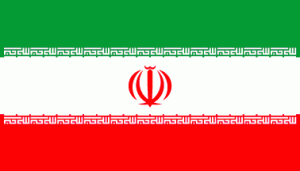 TEHRAN (FNA)- Armenian Foreign Minister Edward Nalbandian, in a meeting with his Iranian counterpart Mohammad Javad Zarif, welcomed the start of a new round of talks between the Group 5+1 (the five permanent UN Security Council members plus Germany) and Iran on Tehran's civilian nuclear program.
TEHRAN (FNA)- Armenian Foreign Minister Edward Nalbandian, in a meeting with his Iranian counterpart Mohammad Javad Zarif, welcomed the start of a new round of talks between the Group 5+1 (the five permanent UN Security Council members plus Germany) and Iran on Tehran's civilian nuclear program.During the meeting held on the sidelines of the 68th UN General Assembly Session in New York on Saturday, the Armenian top diplomat expressed the hope that Tehran's nuclear standoff with the West would be settled during the upcoming talks between the two sides.
Zarif, for his part, underlined the peaceful nature of Iran's nuclear program, and expressed Tehran's readiness for the start of the new round of talks with the world powers on the basis of equal footing, confidence building and mutual respect.
The two senior officials also stressed the need to broaden bilateral ties between the two neighboring states in all arenas.
On Friday, Iranian President Hassan Rouhani underlined that his government has full authority from Supreme Leader of the Islamic Revolution Ayatollah Seyed Ali Khamenei for talks with the world�s six major powers.
�The government has sufficient authority to gain substantial results in talks with the Group 5+1,� President Rouhani told reporters at a press conference in New York.
�The government has the necessary authority in nuclear talks and I have chosen the foreign minister for negotiations,� he added.
The Iranian president pointed to a recent meeting of foreign ministers of Iran and the six world powers, and said, �The meetings of Dr. Zarif with G5+1�s foreign ministers were held in a positive and inspiring atmosphere and we hope that these talks could soon bear tangible results.�
The foreign ministers of Iran and the six world powers said Thursday they were pleased with their New York discussions over the settlement of the Iran-West nuclear standoff, adding that they have set a new round of negotiations for next month in Geneva.
The top diplomats of the Group 5+1 described their meeting with Zarif on the sidelines of the UN General Assembly as "a change in tone".
European Union foreign policy chief Catherine Ashton, who chaired the meeting, told reporters it had been �a substantial meeting. Good atmosphere. Energetic�.
She said the two sides had agreed on an "ambitious timetable" to address western concerns about Iran's nuclear program and would meet again in Geneva on October 15-16 �to pursue the agenda to carry on from today's meeting and to hopefully move this process forward�.
Ashton also added a note of caution, saying it was important to focus on �effective work that we do on the ground�.
Iran says its nuclear program is a peaceful drive to produce electricity so that the world's fourth-largest crude exporter can sell more of its oil and gas abroad. Tehran also stresses that the country is pursuing a civilian path to provide power to the growing number of Iranian population, whose fossil fuel would eventually run dry.
The US and its western allies allege that Iran is pursuing a nuclear weapons program while they have never presented corroborative evidence to substantiate their allegations against the Islamic Republic.
Iran is under four rounds of UN Security Council sanctions for turning down West's calls to give up its right of uranium enrichment, saying the demand is politically tainted and illogical.
Iran has so far ruled out halting or limiting its nuclear work in exchange for trade and other incentives, saying that renouncing its rights under the Non-Proliferation Treaty (NPT) would encourage the world powers to put further pressure on the country and would not lead to a change in the West's hardline stance on Tehran.
Iran has also insisted that it would continue enriching uranium because it needs to provide fuel to a 300-megawatt light-water reactor it is building in the Southwestern town of Darkhoveyn as well as its first nuclear power plant in the Southern port city of Bushehr.
Tehran has repeatedly said that it considers its nuclear case closed as it has come clean of the International Atomic Energy Agency (IAEA)'s questions and suspicions about its past nuclear activities.
In May, Iran and the six world powers wrapped up their 4th round of talks after two days of intensive negotiations in Almaty, Kazakhstan.
Iranian officials have always shrugged off the sanctions, saying that pressures make them strong and reinvigorate their resolve to further move towards self-sufficiency.
Russia unlike the western members of the G5+1 reiterates on the necessity for recognition of Iran's right of uranium enrichment.
The senior Russian officials have on several occasions emphasized the need for progress in Iran's nuclear case and the relevant negotiations on the basis of mutual cooperation and respect.
By Fars News Agency
The Iran Project is not responsible for the content of quoted articles.










